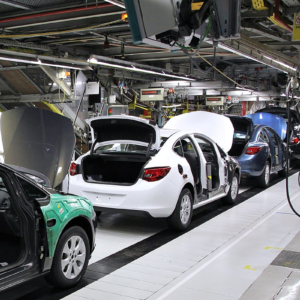A major shakeup in the automotive industry is underway as experts predict that Nissan, one of the world’s most recognizable car manufacturers, could face collapse within the next 12 months. The alarming forecast has sent shockwaves across the global automotive sector, raising concerns about the potential impact on employees, investors, and the industry as a whole.
Nissan’s Downturn
Nissan, which employs over 20,000 people globally, has been grappling with significant financial challenges. The company recently announced plans to close 20% of its manufacturing capacity and lay off approximately 9,000 employees in an effort to cut costs. These measures are part of a broader initiative to reduce expenses by $2.6 billion, but industry insiders warn that this may not be enough to stave off financial ruin.
Last month, Nissan’s head of manufacturing, Hideyuki Sakamoto, revealed that the company would reduce its operational production lines by 20% to increase efficiency. He explained that this would involve adjusting line speeds and shift patterns to optimize the use of personnel. However, these measures highlight the severity of Nissan’s financial difficulties.
Leadership Challenges
Nissan’s leadership has not been immune to the cost-cutting measures. Chief Executive Makoto Uchida has taken a 50% pay cut, and Chief Financial Officer Stephen Ma has stepped down amid the turmoil. These developments underscore the gravity of the situation and the uphill battle Nissan faces in its bid for survival.
Uchida admitted that the company failed to adapt to changing consumer preferences, particularly the rising popularity of hybrid and electric vehicles. “This has been a lesson learned,” he said. “We were not able to keep up with the times.”
Government Assistance and Industry Regulations
The Financial Times reports that Nissan may require government assistance to avoid bankruptcy. However, such a bailout could leave the company owing an estimated $5.6 billion. According to one insider, Nissan has “12 or 14 months to survive,” emphasizing the urgency of the situation.
Nissan has also been vocal about regulatory challenges. The company recently appealed to the U.K. government to relax fines for missing electric vehicle (EV) sales targets under the Zero Emissions Vehicles Mandate. These fines, Nissan argues, would exacerbate its already precarious financial situation.
Rachel Reeves, the U.K. Chancellor, expressed a willingness to support car manufacturers during this transition period. “We are committed to the 2030 target for phasing out the purchase of new petrol and diesel cars,” she said, adding that the government is reviewing policies to ensure they do not disproportionately burden the automotive sector.
The Road Ahead
Nissan’s financial troubles come at a critical time for the automotive industry, which is undergoing a massive transformation toward electric and hybrid vehicles. As competitors innovate and adapt to the growing demand for sustainable transport, Nissan finds itself struggling to keep pace.
Despite its current challenges, Nissan’s global presence and historical significance in the automotive industry make its potential collapse a major concern. A failure to secure sufficient financial backing or execute a successful turnaround strategy could have far-reaching implications for the company and the broader industry.
Lessons Learned
Nissan’s struggles highlight the importance of innovation and adaptability in an ever-changing market. The rise of hybrid and electric vehicles was not an overnight phenomenon, but Nissan’s inability to anticipate and respond to this shift has left it in a precarious position.
The company’s appeal for regulatory leniency and government support underscores the delicate balance between enforcing environmental standards and supporting an industry in transition. While regulations play a critical role in combating climate change, they must also consider the economic realities faced by manufacturers.
Conclusion
Nissan’s future hangs in the balance as it navigates one of the most challenging periods in its history. With insiders warning of potential collapse within the next year, the company must act swiftly to address its financial woes and regain its competitive edge.
Whether through government intervention, strategic cost-cutting, or a renewed focus on innovation, Nissan’s ability to weather this storm will have a profound impact on its employees, stakeholders, and the global automotive industry.
As the clock ticks, the world watches closely to see if Nissan can overcome these obstacles and emerge stronger—or if it will become a cautionary tale for other automakers.
